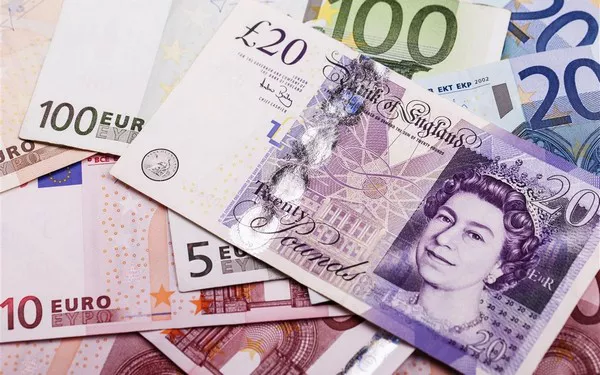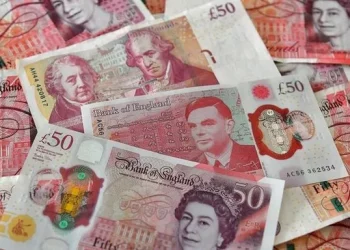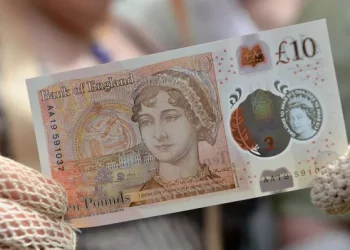The main factors affecting the trend are as follows: 1. Balance of payments The balance of payments can reflect the supply and demand relationship of a country.
When it receives more than it spends, there is a surplus, the country demands more than it supplies, and the exchange rate rises.
Conversely, when a deficit occurs, the country’s currency supply exceeds demand, and the exchange rate will fall.
The balance of payments includes several items such as trade balance, service balance and capital flow.
It should be noted that short-term capital flows in capital accounts are highly speculative, which will have a great impact on the supply and demand of money and the rise and fall of the exchange rate.
2. Inflation Inflation is the most important fundamental factor affecting exchange rate movements.
The impact on the exchange rate includes: (1) if the country is higher than other countries, it will reduce the country’s export competitiveness, cause trade balance deficit, the country’s currency supply exceeds demand, the exchange rate will fall.
(2) Excessively high inflation rate will affect the actual difference between domestic and foreign countries, promote capital flight, cause the capital account deficit and the decline of the domestic currency exchange rate.
(3) As inflation is a continuous process of rising prices, it will also affect the market’s expectations of prices and exchange rates in the future.
In this expectation, in order to avoid the possible loss caused by the depreciation of the local currency, people will sell the local currency and snap up foreign exchange, and this speculative behavior will cause the further decline of the exchange rate of the local currency.
3. Interest Rate Interest rate has a significant impact on exchange rate.
The difference of interest rates in different countries has a direct impact on international short-term capital flows and a certain adjustment effect on exchange rates.
Rising interest rates will attract foreign capital inflows, which will increase the demand for the country’s currency and push up the exchange rate of the local currency.
On the contrary, the interest rate will decrease, which will lead to capital outflow and the exchange rate will fall.
Every rate rise or cut, for example, sends shock waves through the currency markets.
4. Market expectation psychology Market expectation psychology factors play a considerable role in exchange rate fluctuations. If people are optimistic about a country’s economic situation, balance of payments, inflation and interest rate prospects, a large amount of the country’s currency will be bought, resulting in the rise of the exchange rate;
On the contrary, the exchange rate will fall.
This psychological expectation is accompanied by a variety of speculative factors, even some rumors, a leader’s speech, will cause speculative activities and may set off a great wave in the foreign exchange market, resulting in the exchange rate fluctuations.
5. The policies of the governments of various countries will directly or indirectly affect the exchange rate, especially the fiscal and financial policies.
Although the exchange rate policy cannot change the basic trend of the exchange rate, the role of a country to further take measures to aggravate the decline or rise of the exchange rate according to the trend of its own currency cannot be underestimated.
When a country implements “tight” fiscal and financial policies, the external exchange rate of its currency basically shows an upward trend, and when it implements “loose” fiscal and financial policies, it will lead to a decline.
For example, after the 2008 economic crisis, the United States implemented it in 2010, and the index fell from 120 to 79 in 2013 when the Democratic Party of Japan was in power. Later, after the LDP Prime Minister Shinzo Abe came to power, Japan implemented the policy, and the dollar soared back to 120.
6. Intervention of Monetary Authorities In order to maintain economic stability and avoid the adverse impact of exchange rate changes on the domestic economy, central banks of various countries often intervene in the market and make exchange rate changes beneficial to the domestic economy by buying and selling foreign exchange.
Countries sometimes intervene jointly to influence exchange rate movements in order to stabilize the market.
It should be pointed out that when there are drastic and frequent fluctuations in the foreign exchange market, the intervention of the central bank is often difficult to achieve the desired effect.
7. Speculative activities, particularly in foreign exchange by multinational investment companies, sometimes lead to fluctuations in exchange rates beyond what might be expected to be reasonable.
8. Political events Major and sudden international political events also have a significant impact on exchange rate changes.
War can be one of the important factors that lead to the collapse of the exchange rate of the participating countries.
For example, the dollar was battered in the early days of the Gulf War in January 1991 and the terrorist attacks on the World Trade Center on September 11, 2001.
The worsening situation in Russia and Ukraine pulled oil prices up more than 6 percent, U.S. stocks fell again gold took the opportunity to rebound, focus on PPI data.
Please pay attention to the specific operation, the market is changing rapidly, investment needs to be cautious, the operation strategy is for reference only.

























